|
|
Contact EAS
Council
Contact individual council members:
-
▸
Sara Lucatello (Italy) — President (since 2024; Vice-President 2018-2024)
-
Responsibility: Chair Council meetings, Business meetings with the Affiliated Societies, and the annual General Assembly; Link to the University of Geneva and EAS Office; Liaison with IAU, AAS, AfAS; Satellite Constellations Working Group; Link to COPUOUS
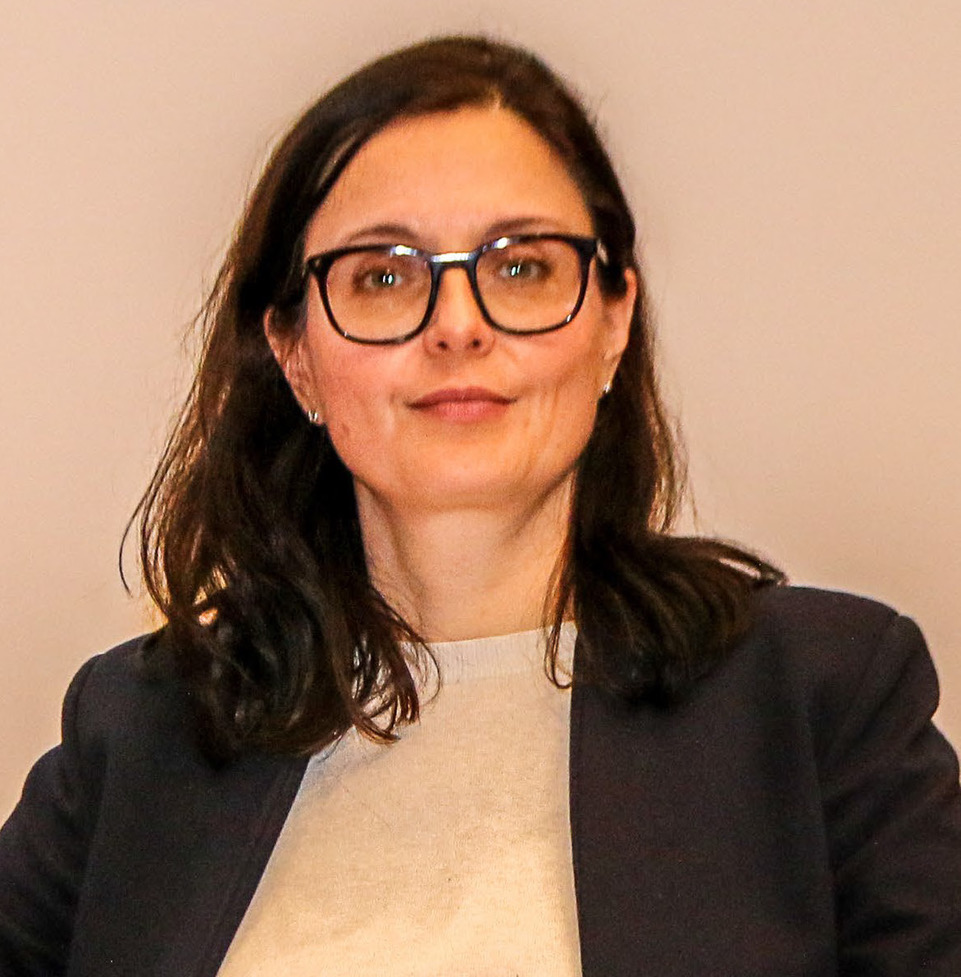 Sara Lucatello
Sara Lucatello
works at the INAF Osservatorio Astronomico di Padova. She obtained her undergraduate degree and PhD from University of Padova, Italy.
After postdoctoral work at University of Texas Austin, she was INAF fellow in Padova and later
Excellence Cluster Universe fellow in Munich. She joined the faculty at INAF Osservatorio Astronomico di Padova in 2006.
She served as a member of the science teams in the SDSS surveys SEGUE-2 and APOGEE and is currently a member
of the Galactic Archeology steering committee of European survey WEAVE, where she also coordinates the calibration
teams. She has served as a member and co-chair of the Committee of Participation of Women in Sloan and
as a member of the Committee for Inclusion in Sloan, the organs for diversity and equal opportunities in
the SDSS collaboration. Her scientific interests focus on spectroscopic studies of stellar populations, the formation and chemo-dynamical
evolution of the Milky Way and its subcomponents, large Galactic stellar surveys and Big Data in Astronomy.
-
▸
Lex Kaper (The Netherlands) — Vice-President (since 2020; Councillor 2016-2020)
-
Responsibility: Chairman of EAS Annual Meeting board
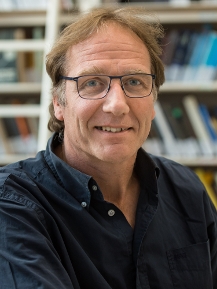 Lex Kaper
Lex Kaper
is a Professor of Astronomy at the Anton Pannekoek Institute of the University of Amsterdam. He obtained his PhD in astronomy at the University of Amsterdam in 1993. He moved to the European Southern Observatory Headquarters and spent there 4 years as a (senior) postdoctoral fellow. In 1998 he was awarded a 5-year Royal Academy fellowship and returned to the University of Amsterdam. In 2005 he obtained a professorship at the Vrije Universiteit Amsterdam. From 2019 - 2024 he has been the vice-dean of the Faculty of Science of the University of Amsterdam. His research interests focus on massive stars, their formation, evolution and fate. He is involved in the development of astronomical instrumentation: he is the NL-PI of the optical to near-infrared X-shooter spectrograph on the ESO Very Large Telescope and co-PI of MOSAIC, a multi-object spectrograph under development for the European Extremely Large Telescope. In 2019 Kaper was awarded the Descartes - Huygens prize.
-
▸
Nabila Aghanim (France) — Vice-President (since 2024; Councillor 2022-2024)
-
Responsibility: Chair EAS Prize Committee; Oversee nomination of the Lodewijk Woltjer Lecturer; Link to AfAS
 Nabila Aghanim
Nabila Aghanim
is a senior researcher of CNRS at the Institut d'Astrophysique Spatiale. She is a leading expert in the field of observational cosmology, more specifically Cosmic Microwave Background (CMB) anisotropies and Large Scale Structure (LSS). Most of her research has taken place in the context of space missions, mainly Planck and Euclid. She played a key role in Planck by leading the working group (WG) on "Clusters and Secondary anisotropies" involving researchers from all over Europe and the US. As WG-lead, she put together the science programme of the collaboration. She has led and significantly contributed to some of the highest-impact Planck papers on the cluster catalogue construction, the cosmological analysis of clusters and the reionisation history. She now co-coordinates the WG on "CMB Cross-correlation". Since 2017, Dr Aghanim is P.I. of an ERC grant on the detection and characterisation of missing baryons. With her team, she has found and studied their signatures in the filaments of the LSS in the SZ, X-rays, and lensing. The expertise of Nabila Aghanim was recognised by the CNRS Bronze medal that she received in 2005 and the Silver medal awarded in 2017.
-
▸
Nick Kylafis (Greece) — Treasurer (since 2019, Councillor 2018-2019)
-
Responsibility: Finances, incl. EAS annual meetings; Recruitment of Organisational members
 Nick Kylafis
Nick Kylafis
was a postdoctoral fellow at Caltech (1979 - 1981) and at the Institute for Advanced Study, Princeton (1981 - 1984). Then, he was an Assistant Professor at Columbia University (1984 - 1985) before accepting an Assistant Professor position at the University of Crete in 1985. He was promoted to Associate Professor in 1989 and Professor in 1997. He served as Chairman of the Department of Physics from 1999 to 2003, as well as Dean of the School of Sciences from September 2008 to May 2013. During the period 2012-2016 he was a member of the Council of the University of Crete. He retired and was elected Emeritus Professor in 2016.
-
▸
Andreja Gomboc (Slovenia) — Secretary (since 2024; Councillor 2023-2024)
-
Responsibility: Deputy Newsletter Editor
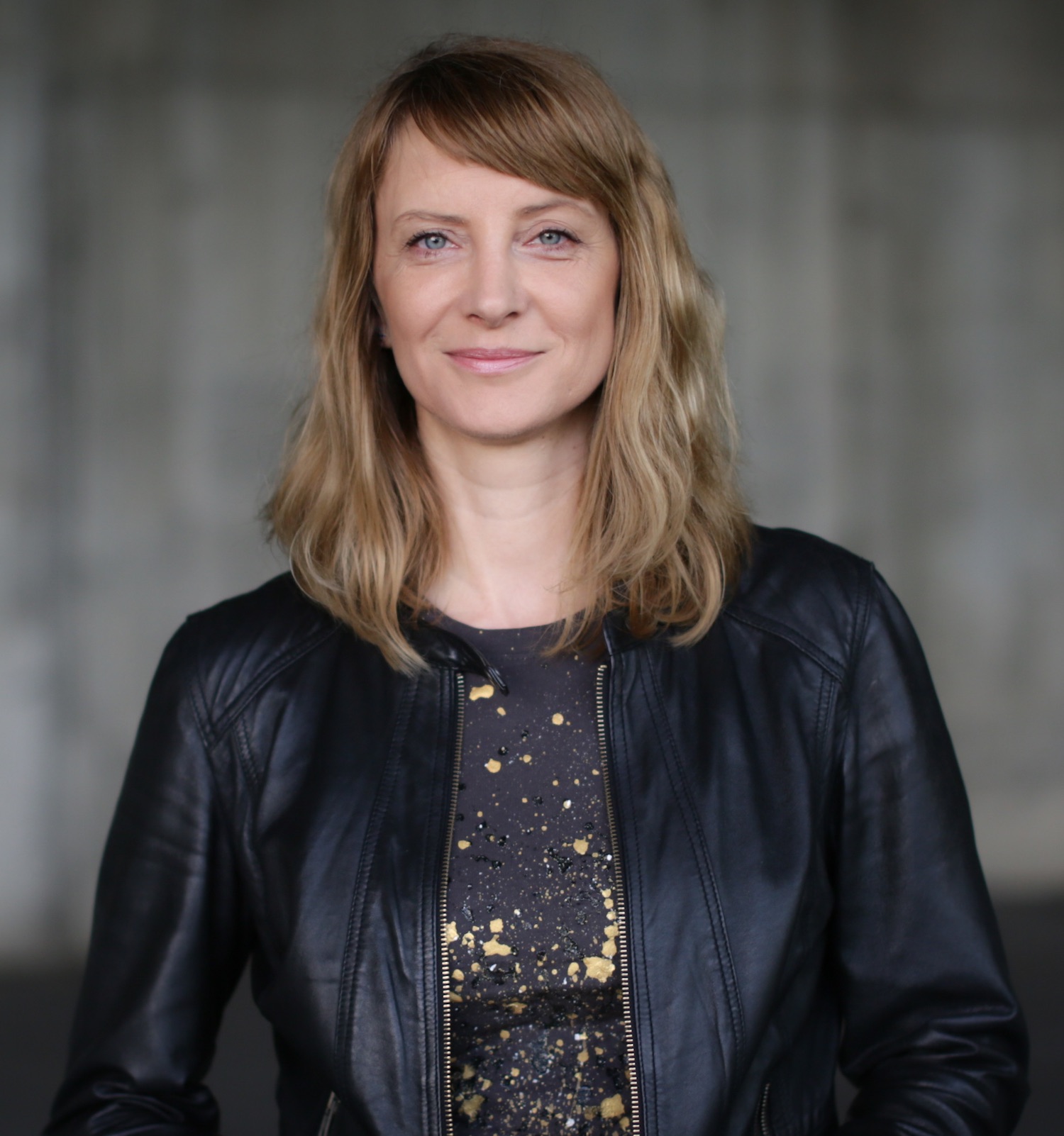 Andreja Gomboc
Andreja Gomboc is Professor of Astronomy at the University of Nova Gorica, Slovenia. She obtained PhD at the University of Ljubljana (2001), was Marie Skłodowska Curie postdoctoral fellow at Liverpool John Moores University, UK (2002-2004), and Fulbright Scholar at the University of Washington, USA (2021-2022).
Her main field of research is astrophysical transients, in particular tidal disruption events, gamma ray bursts, and gravitational wave events. Since 2017, she is leading Slovenian participation in Vera Rubin Observatory's LSST.
She initiated the process of Slovenia joining the IAU (2018) and EAS (2019), since 2021 she is a member of the IAU Div D Steering Committee.
She served as the President of the Slovenian Council for Science and Technology (2019-2022) and President of the Slovenian Commission for Equal Opportunities in Science (2018-2022).
She is passionate about work with young generations (e.g., national school competition, GoChile), and promoting astronomy and women in science (e.g. monthly column).
-
▸
Andreas Burkert (Germany) — Councillor (since 2018)
-
Responsibility: European Regional Office of Astronomy for Development; Overseeing of issues on education; Link to Heraeus Foundation
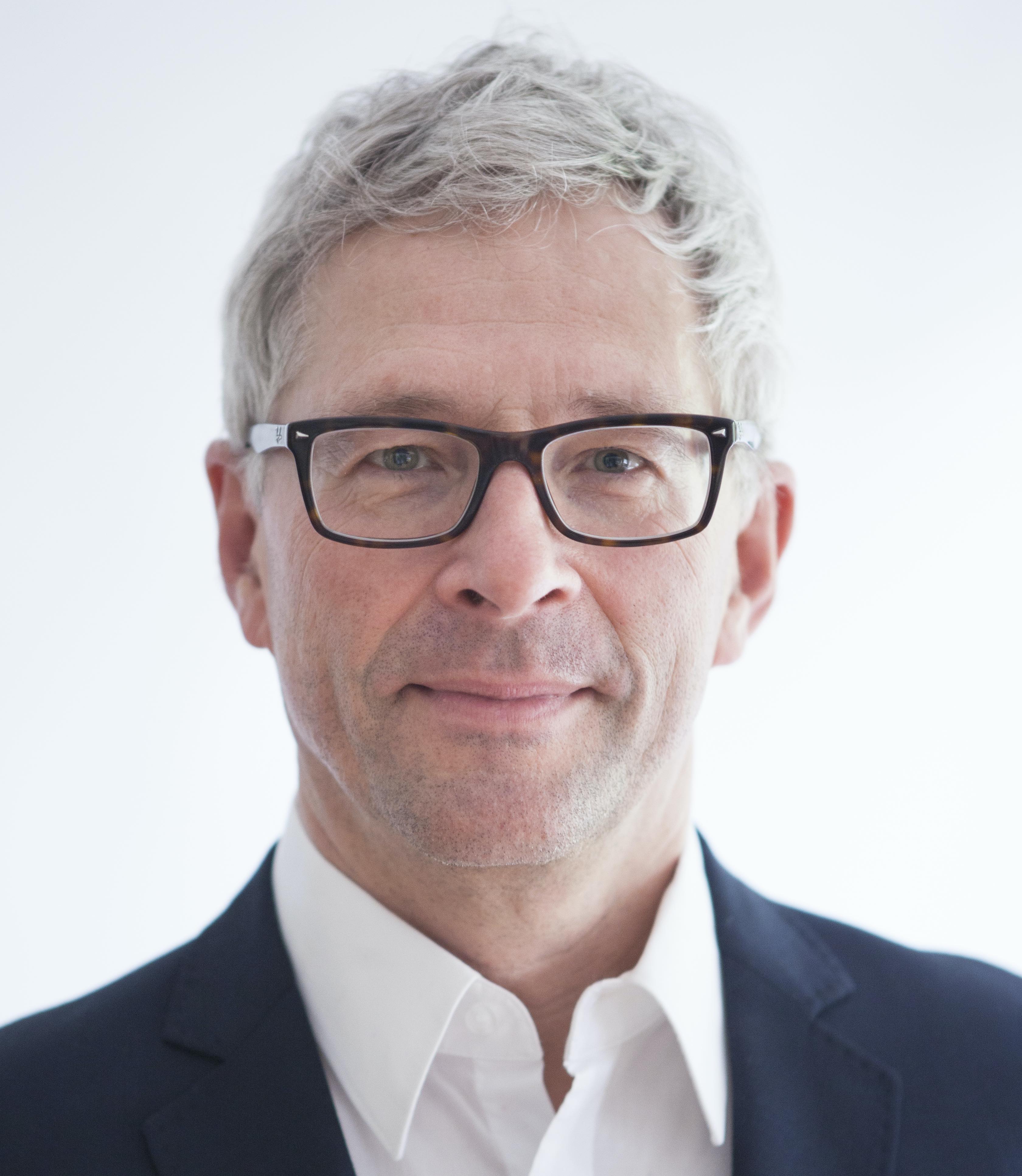 Andreas Burkert
Andreas Burkert
holds the chair for computational astrophysics at the Ludwig-Maximilians Universität München since 2003. He got his doctoral degree from the University of Munich (1989) and then went on a Feodor Lynen Fellowship to the University of Illinois, Urbana (1989-1990) and to the University of California, Santa Cruz (1990-1991). In 1991 he joined the Max-Planck-Institute for Astrophysics in Garching as a staff member and in 1995 accepted an offer from the Max-Planck-Institute for Astronomy in Heidelberg to build a new theory group. In 1995 he also received the Habilitation.
-
▸
Agata Różańska (Poland) — Councillor (Councillor since 2020)
-
Responsibility: Newsletter Editor; Recruitment of Organisational members in Eastern Countries
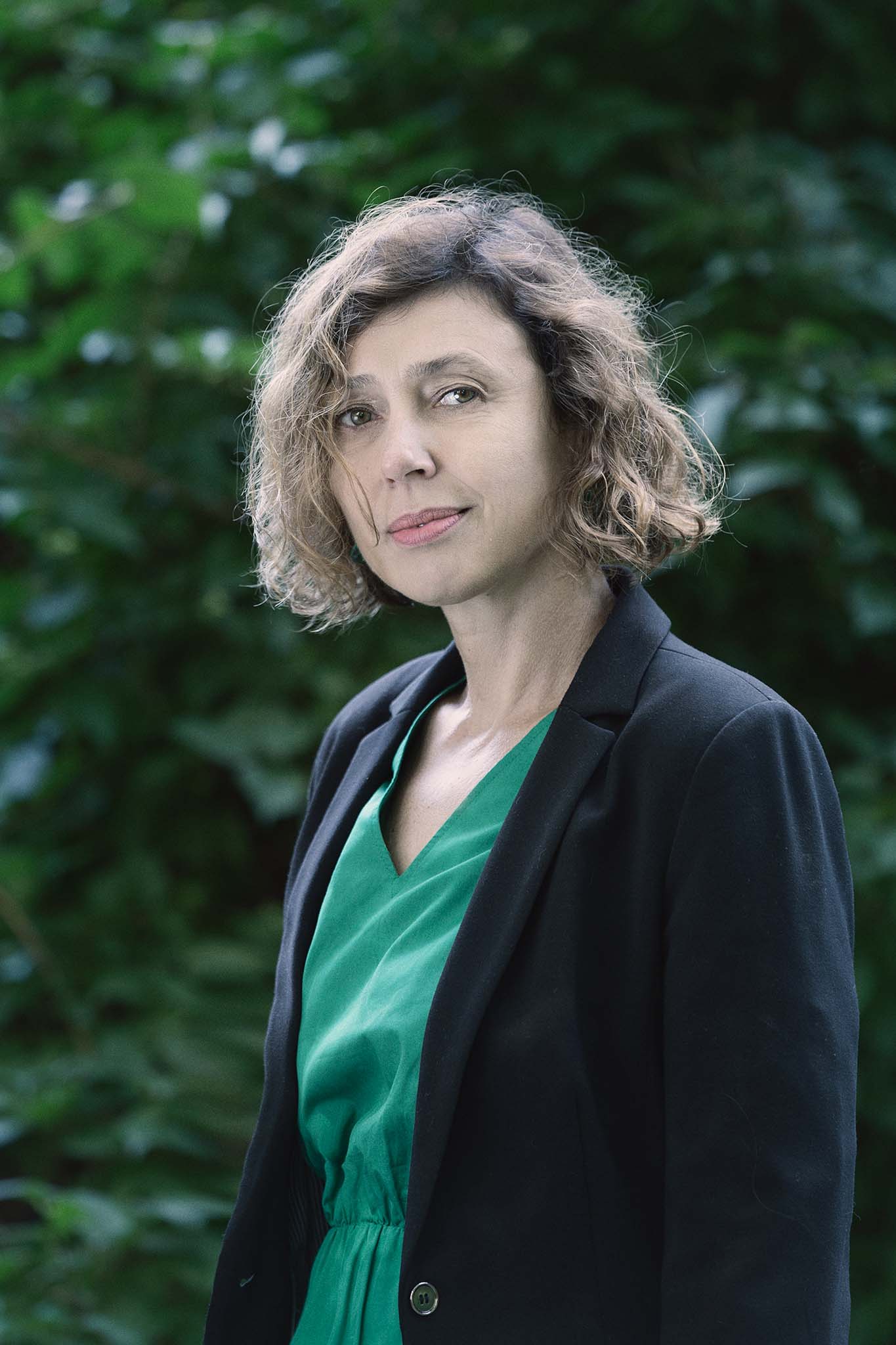 Agata Różańska
Agata Różańska
is a Professor and Deputy Director at CAMK PAN (N. Copernicus Astronomical Center Polish Academy of Sciences).
She works on numerical computations of emission processes in astrophysical X-ray sources and their observations.
Her areas of research include simulations of radiative transfer through the warm ionized media, through the hot
atmospheres of neutron stars and atmospheres of accretion disks around black holes in AGN and in X-ray binaries.
She started the study of multi-phase regions around supermassive black holes in the centres of galaxies. In 2013-2021 she was a treasurer
of the Polish Astronomical Society. Since 2014, she has been the main editor of the conference proceedings series of the Polish Astronomical Society.
Up to now 12 volumes have been published. Since 2014, she is a leader of Polish team of scientist and engineers working on the development of subsystems
for the ATHENA (Advanced Telescope for High Energy Astrophysics) - new generation ESA space mission.
-
▸
Antoaneta Antonova (Bulgaria) — Councillor (Councillor since 2020)
-
Responsibility: Liaison with Sustainability and Equity, Diversity & Inclusion Advisory Committees; EAS representative for the selection of A&A awards
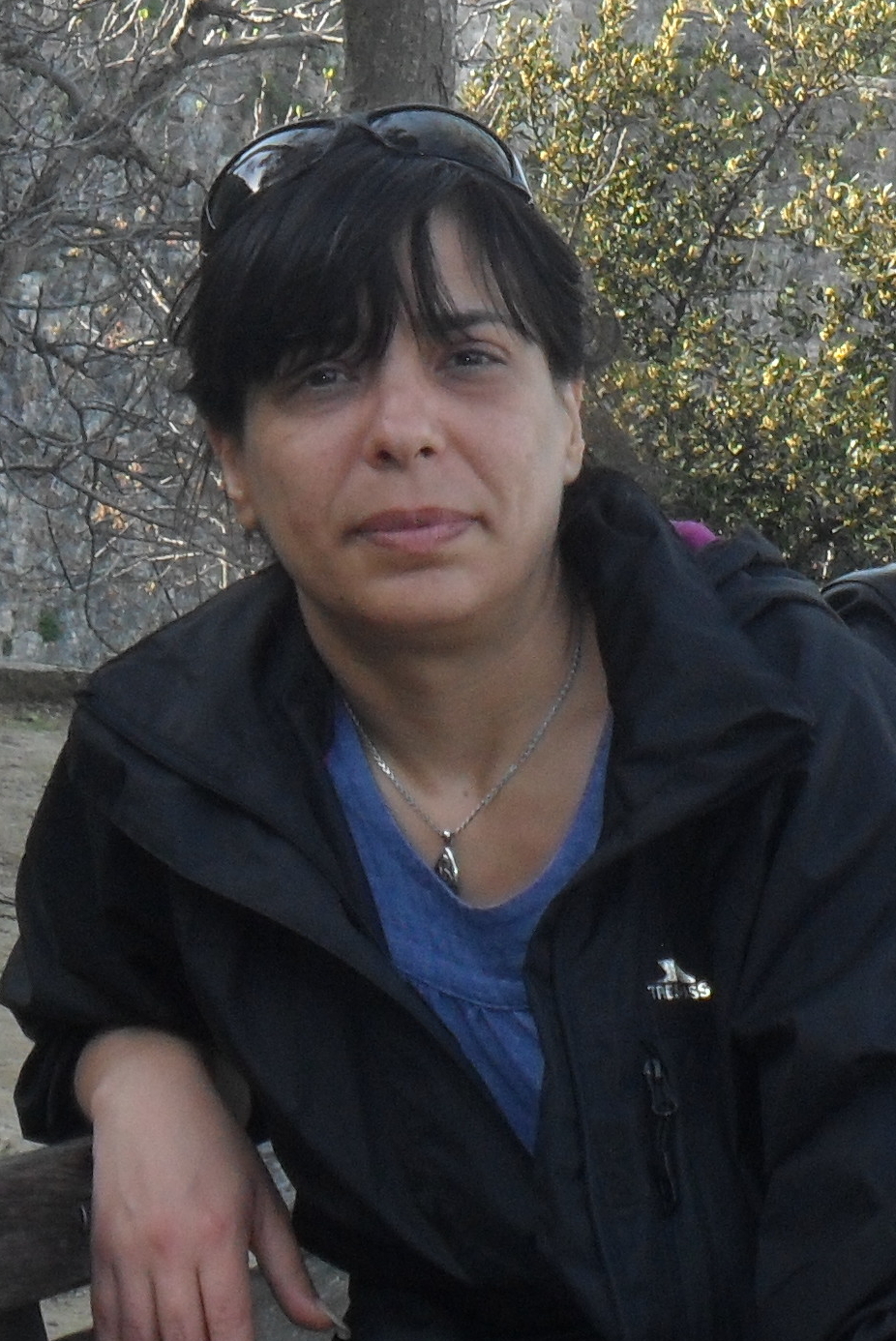 Antoaneta Antonova
Antoaneta Antonova
is an Associate Professor at the Institute of Astronomy and National
Astronomical Observatory, part of the Bulgarian Academy of Sciences. Her
master's degree in Physics is from Sofia University, Bulgaria. She did her
PhD at Armagh Observatory and Queen's University Belfast in Northern
Ireland. From 2008 until 2012 she was an assistant professor at the
Department of Astronomy, Sofia University, and an Associate Professor at
the same department from 2012 until the end of 2018. She is currently the
President of the Bulgarian Astronomical Society and Chair of the National
committee for organising the National astronomy Olympiad. Her main research
interests are in the field of magnetic activity of cool stars and brown
dwarfs and its diagnostics in the optical and radio domains.
-
▸
Mariya Lyubenova (Germany) — Councillor (Councillor since 2023)
-
Responsibility: Communication strategy, Liaison with EAS Policy Advisory Commitee; Social media presence
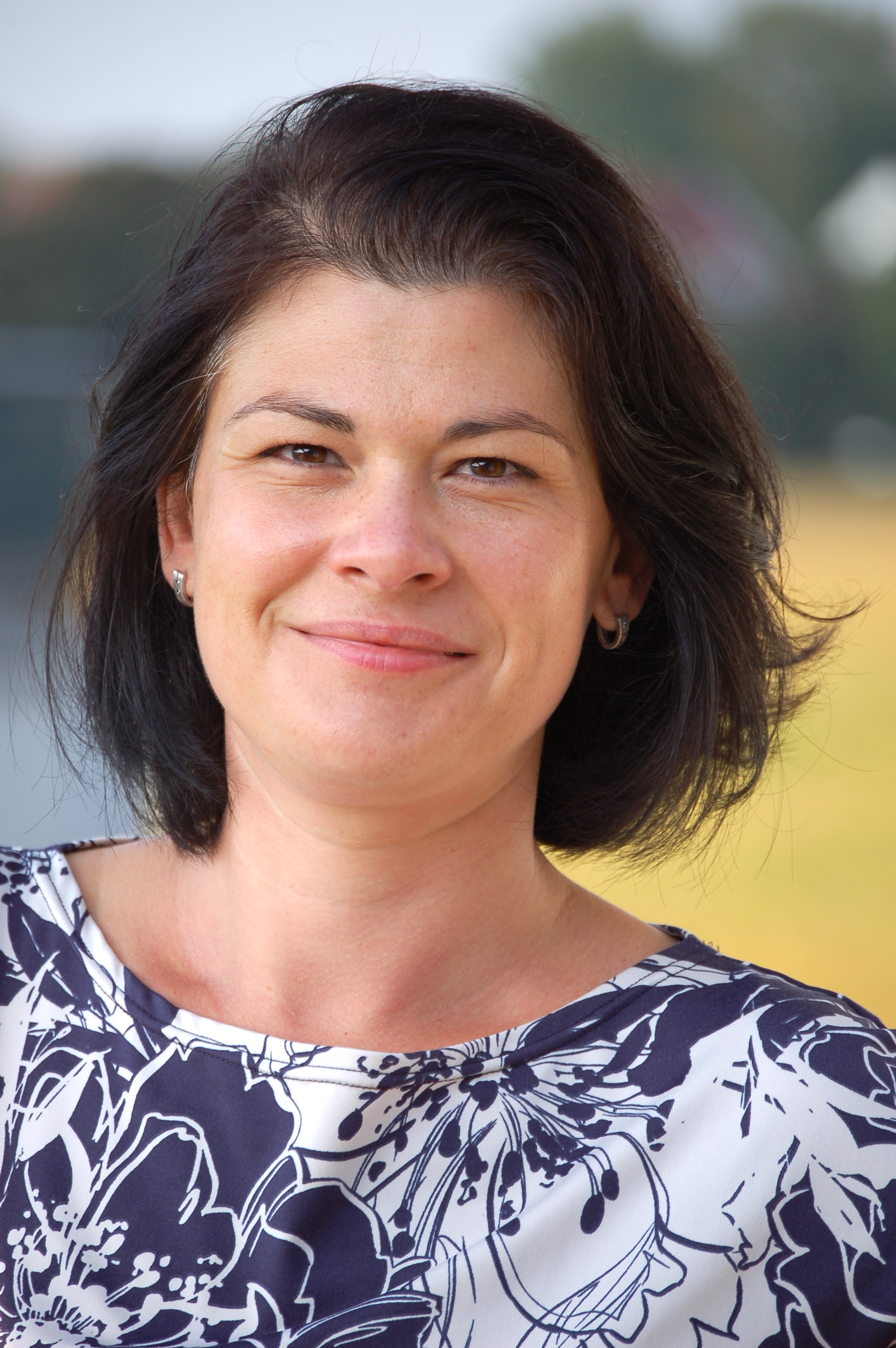 Mariya Lyubenova
Mariya Lyubenova is a researcher who thrives at the intersection of fields, disciplines, and sectors in society. She holds a MSc in Physics and Astronomy from Sofia University in Bulgaria, a PhD in Astronomy from the University of Munich, Germany, and a certificate in science diplomacy from the Institut Barcelona d'Estudis Internacionals in Spain. She has held postdoc positions at the Max-Plank Institute for Astronomy in Heidelberg, where she was also an Equal Opportunity Officer, and later at the Kapteyn Astronomical Institute of the University of Groningen in the Netherlands.
Currently Dr Lyubenova is a faculty astronomer (associate level) at the European Southern Observatory (ESO). Her research focuses on the processes that shape the evolution of galaxies, the interplay between baryons and dark matter, and the formation and evolution of galaxy nuclei in particular. She co-led the stellar kinematics working group of the CALIFA Survey, was the project manager of the XSL Survey, and a core team member of the Fornax3D survey, among others. In her functional work at ESO Dr. Lyubenova is head of Media Relations, science advisor to the Department of Communication, and editor of ESO's science & technology journal The Messenger. She is also a member of ESO's Diversity & Inclusion Committee.
-
▸
Sven Wedemeyer (Norway) — Councillor (Councillor since 2024)
-
Responsibility: Liaison with Astronet; EAS annual meeting Board
 Sven Wedemeyer
Sven Wedemeyer is a professor and one of the PIs of the Rosseland Centre for Solar Physic, a centre of excellence at the Institute of Theoretical Astrophysics, University of Oslo (UiO), Norway. After receiving a PhD in astronomy from the University of Kiel, he held post-doctoral positions at the Kiepenheuer Institute for Solar Physics, Germany, and the University of Oslo including a Marie Sk?odowska Curie Intra-European Fellowship(2007 - 2009), followed by a ERC Consolidator Grant (2016-2021). He has served as a member of the European Scientific Advisory Committee (ESAC) for ALMA (ESO) and as the Norwegian representative for the Observing Programmes Committee (OPC) for the Nordic Optical Telescope (NOT). He is currently the vice president of the European Solar Physics Division of the European Physical Society.
His scientific interests mostly focus on the dynamics, energetics, and activity of the Sun?s atmosphere in comparison to atmospheres for other stellar types and with implications for exoplanet habitability. His research combines 3D MHD simulations with observations at UV to millimeter/radio wavelengths.
-
▸
Ignacio Ferreras (Spain) — Councillor (Councillor since 2024)
-
Responsibility: EAS Annual Meeting Board; Liaison with European Parliament
 Ignacio Ferreras
Ignacio Ferreras is a researcher at the "Instituto de Astrofisica de Canarias" in Tenerife, Spain, and also holds an honorary professor position at
University College London (UK). After obtaining his PhD, he spent most of my academic life in the UK at various places: Oxford, King's College London and UCL, and he is a fellow of the Royal Astronomical Society. His area of research focuses on galaxy formation and evolution, with special emphasis on the analysis of photometric and
spectroscopic data to assess the stellar population content and its connection with all possible drivers of evolution. At present he is the secretary of the organising committee of IAU-J1, an inter-division commission targeting the spectral energy distributions of galaxies.
-
▸
Robert Massey (UK) — Councillor (Councillor since 2025)
-
Responsibility: Satellite Constellations Working Group; Social media presence
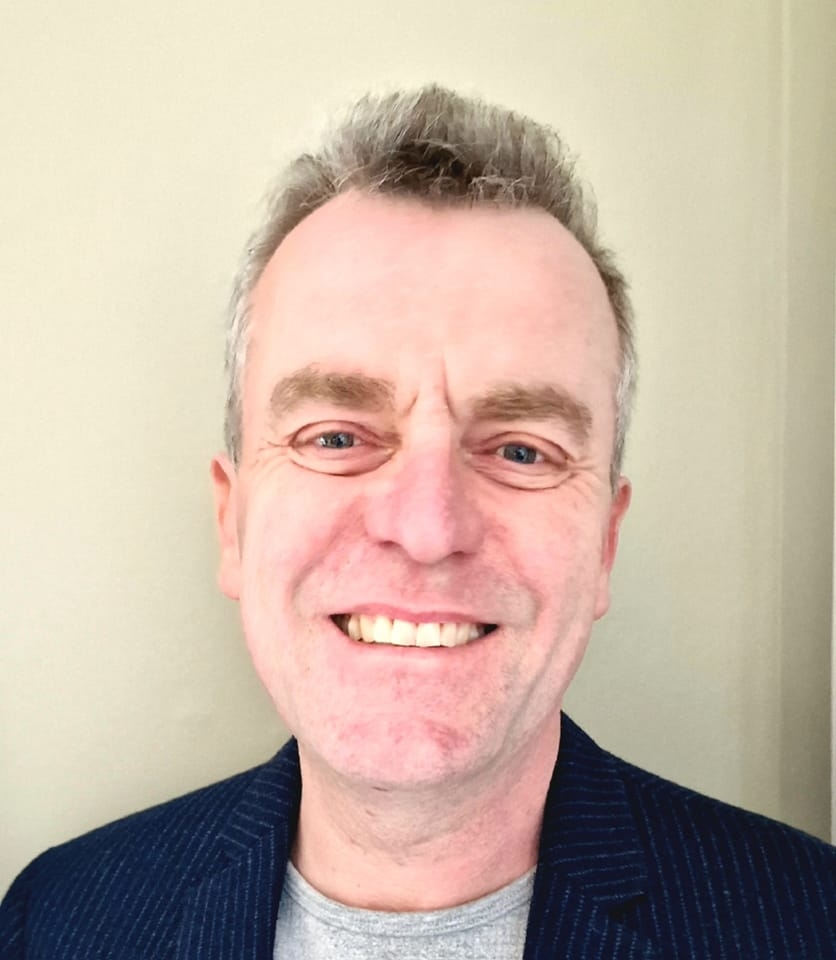 Robert Massey
Robert Massey is Deputy Executive Director of the Royal Astronomical Society, where he oversees the Society's public and political engagement. Before joining the RAS, his career took him from being an undergraduate in Leicester and PhD research in Manchester to teaching physics and mathematics in a college in Brighton, local politics in a London borough where he served as cabinet member for children and young people, and a stint as Public Astronomer at the Royal Observatory Greenwich. Robert has served as a board member for the National Schools Observatory, for the STFC JWST Public Engagement Steering Group, UK Space Agency Science Programme Advisory Committee, UK Space Conference Organising Committee, and as chair of trustees of the Lightyear Foundation. He currently co-chairs the European Astronomical Society Working Group on Satellite Constellations, and was recently appointed as an Honorary Visiting Professor at the University of Sussex.
For the last few years he has co-chaired the EAS working group on satellite constellations, supporting the EAS in its work raising this issue with European and national governments.
-
The EAS Council is helped by the EAS Executive Secretary, Dr Marc Audard, who leads the EAS Office.

Contact all council members
Office
The EAS Office is hosted by the Department of Astronomy of the University of Geneva. Requests related to Individual Memberships are to be addressed to Ms. Windiann Baker.
For all other matters please contact the Executive Secretary, Dr Marc Audard.
- The general address is:
-
EAS Office
Department of Astronomy
University of Geneva
Chemin d'Ecogia 16
CH-1290 Versoix
Switzerland
- Phone:
-
Tel: +41 22 379 21 47 (W. Baker)
Tel: +41 22 379 21 66 (M. Audard)
E-mail: eas-membership @ unige.ch (for membership requests and fee payment)
E-mail: eas-web @ unige.ch (for requests related to the EAS and EAS annual meeting websites)
E-mail: execsec-eas @ unige.ch (to contact directly the Executive Secretary)
E-mail: finance-eas @ unige.ch (for financial matters)
E-mail: eas @ unige.ch (for any other request)
|

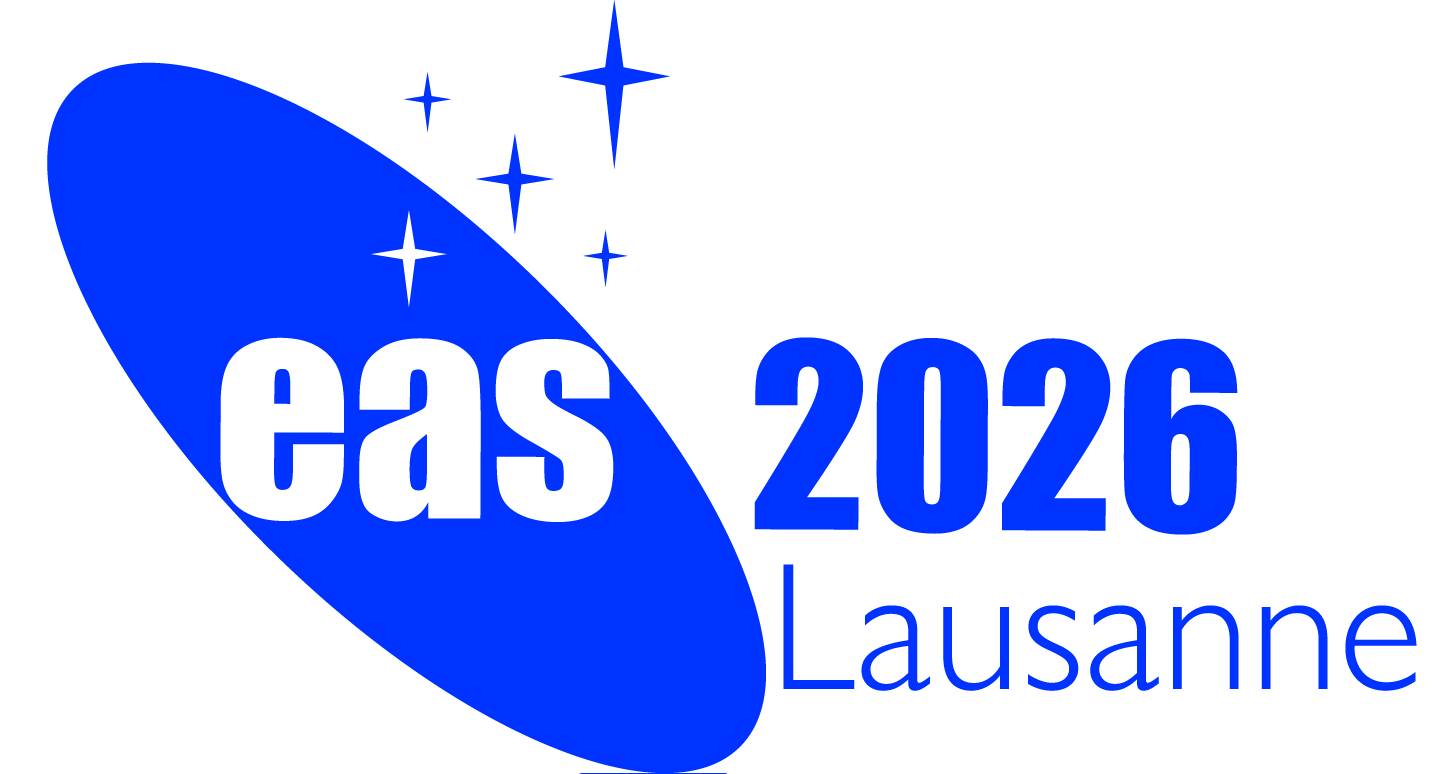
 Sara Lucatello
works at the INAF Osservatorio Astronomico di Padova. She obtained her undergraduate degree and PhD from University of Padova, Italy.
After postdoctoral work at University of Texas Austin, she was INAF fellow in Padova and later
Excellence Cluster Universe fellow in Munich. She joined the faculty at INAF Osservatorio Astronomico di Padova in 2006.
She served as a member of the science teams in the SDSS surveys SEGUE-2 and APOGEE and is currently a member
of the Galactic Archeology steering committee of European survey WEAVE, where she also coordinates the calibration
teams. She has served as a member and co-chair of the Committee of Participation of Women in Sloan and
as a member of the Committee for Inclusion in Sloan, the organs for diversity and equal opportunities in
the SDSS collaboration. Her scientific interests focus on spectroscopic studies of stellar populations, the formation and chemo-dynamical
evolution of the Milky Way and its subcomponents, large Galactic stellar surveys and Big Data in Astronomy.
Sara Lucatello
works at the INAF Osservatorio Astronomico di Padova. She obtained her undergraduate degree and PhD from University of Padova, Italy.
After postdoctoral work at University of Texas Austin, she was INAF fellow in Padova and later
Excellence Cluster Universe fellow in Munich. She joined the faculty at INAF Osservatorio Astronomico di Padova in 2006.
She served as a member of the science teams in the SDSS surveys SEGUE-2 and APOGEE and is currently a member
of the Galactic Archeology steering committee of European survey WEAVE, where she also coordinates the calibration
teams. She has served as a member and co-chair of the Committee of Participation of Women in Sloan and
as a member of the Committee for Inclusion in Sloan, the organs for diversity and equal opportunities in
the SDSS collaboration. Her scientific interests focus on spectroscopic studies of stellar populations, the formation and chemo-dynamical
evolution of the Milky Way and its subcomponents, large Galactic stellar surveys and Big Data in Astronomy.











